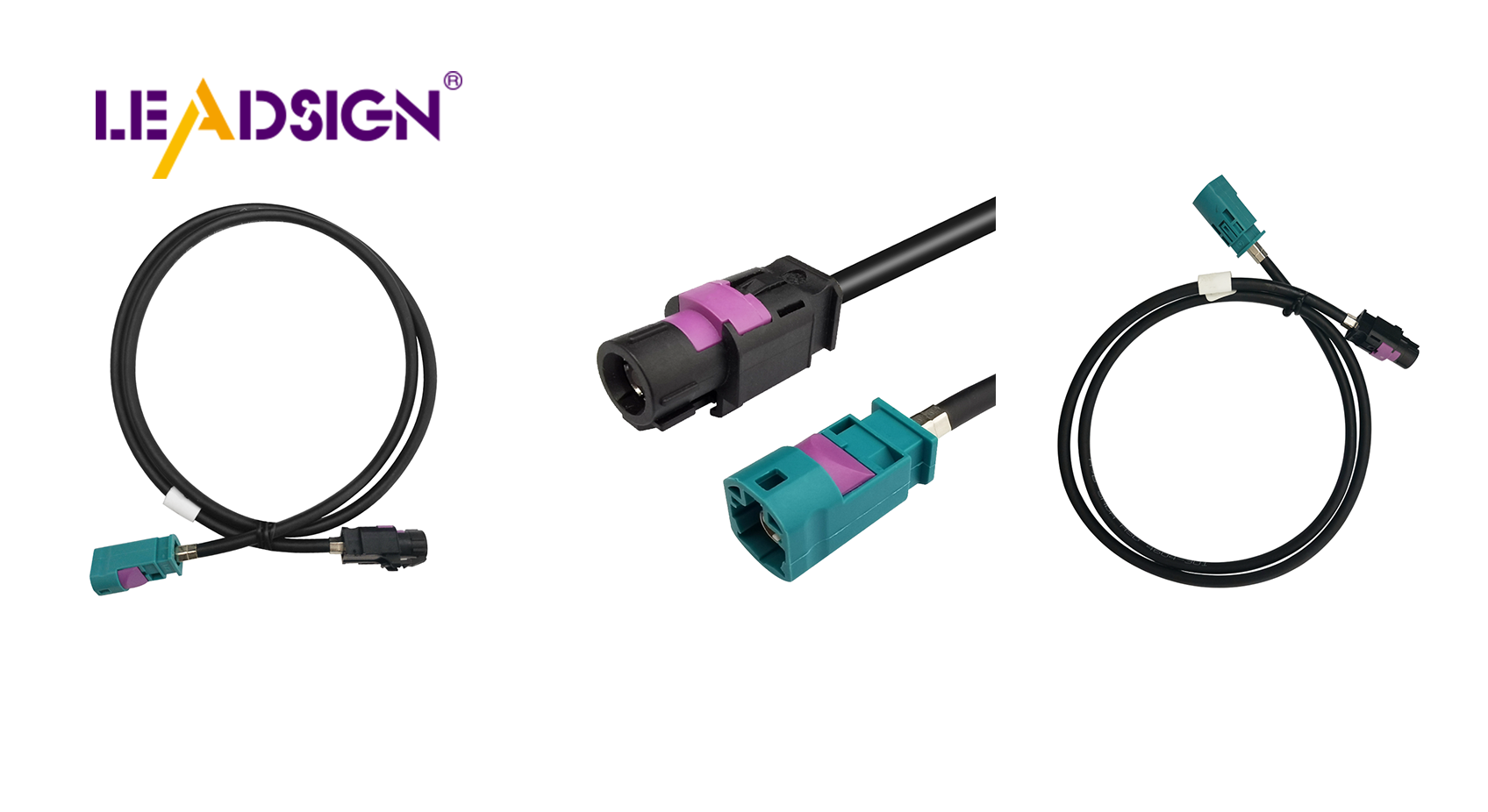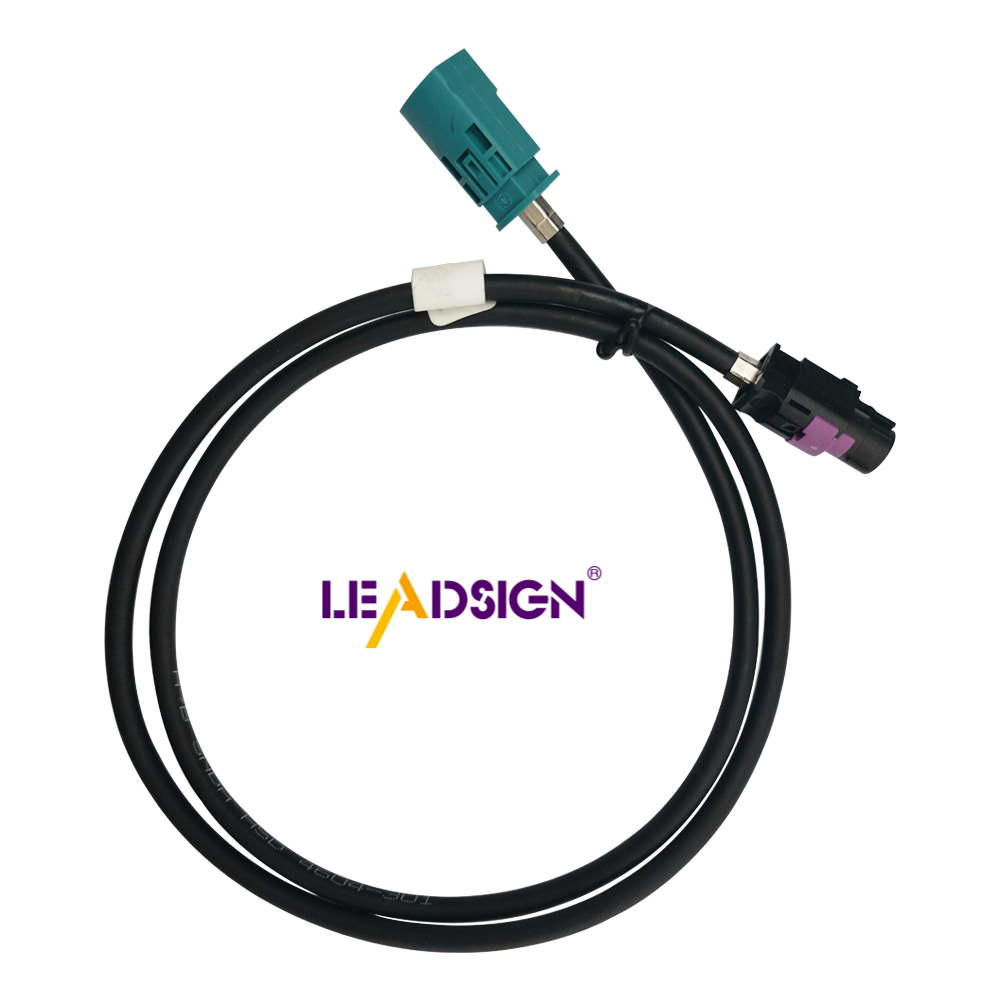Guide to Choosing Automotive Wiring Connector Types

Automotive electrical connectors types are crucial components in modern vehicles. They play a vital role in facilitating communication between various electronic components such as sensors and entertainment systems. With the advancement of electric power and autonomous driving technologies in cars, the demand for improved connectors has increased. There exists a variety of automotive electrical connector types, each designed for specific purposes. These connectors not only accommodate a greater number of wires but also enhance the overall performance and safety of vehicles.
Understanding Automotive Wiring Connectors
Definition and Function
What are wiring connectors?
Wiring connectors are key parts in car systems. They join electrical circuits together. You find them in many vehicle areas, linking wires for smooth communication between electronic parts. They give a strong connection to keep the electrical system working well. wiring connectors
How do they function in automotive systems?
In cars, wiring connectors help electricity flow. They make sure power and signals move well from one part to another. Using a connector makes it easy to put together or take apart circuits. This is important for fixing things. Connectors also stop wires from tangling or breaking, which can cause problems.
Importance in Automotive Systems
Ensuring electrical connectivity
Good electrical connections are crucial for how cars work. Connectors help keep these connections strong. Picking the right connector lowers the chance of bad connections. This is very important for safety systems like airbags and ABS brakes. Studies show that more safety systems mean more need for good connectors.
Impact on vehicle performance and safety
Wiring connectors greatly affect car performance and safety. Good connectors make sure all electronic parts work well together. This teamwork improves your car's overall performance. Also, connectors help with safety by supporting advanced systems like immobilizers and ABS brakes. As people worry more about safety, the need for good connectors grows too. This shows why choosing the right connector matters for your car.
Types of Automotive Wiring Connectors

Knowing different automotive electrical connectors types is important. Each type has a special use and benefits. Let's look at some common ones.
Blade Connectors
Description and uses
Blade connectors, also called spade connectors, are flat metal pieces. They slide into slots. You see them in cars where quick connections are needed. They are used in car radios, lights, and low-power areas.
Advantages and disadvantages
Advantages:
Easy to plug in and out for frequent changes.
Stay firm against shaking, which is key in cars.
Disadvantages:
Not good for high power because of small contact area.
Can rust if wet, which hurts how they work.
Pin Connectors
Description and uses
Pin connectors have pins that fit into sockets. These are common in automotive electrical connectors types, like engine systems and sensors. They align well for secure links.
Advantages and disadvantages
Advantages:
Give strong links with little chance of coming loose.
Work for both low and high power needs, making them flexible.
Disadvantages:
Harder to connect or disconnect than blade types.
Need careful fitting to avoid bending pins.
Butt Connectors
Description and uses
Butt connectors join two wires end-to-end. They're used in car wire fixes or changes. They keep the circuit whole without breaks.
Advantages and disadvantages
Advantages:
Easy to use for fast repairs.
Make a lasting link that handles weather well.
Disadvantages:
Can't be reused; need cutting to remove.
Need a tool to crimp right, which makes it harder.
Knowing these automotive electrical connectors types helps you pick the best one for car wiring jobs. Each has pros and cons, so choose based on your needs and where it will be used.
Other Automotive Electrical Connectors Types
Knowing different automotive electrical connectors types helps you choose wisely for car wiring. Let's look at some other important connector types used in cars.
HSD Connectors
High-Speed Data (HSD) Connectors are key in new cars, especially with more tech features. They send data fast, which is crucial for car electronics. HSD connectors are used in things like LVDS cameras, USB ports, and IEEE 1394. They also help with digital entertainment systems and networks.
Main Features:
Primary and Secondary Lock: Keeps connections tight.
Crimp Connection: Makes a strong electric link.
High Cable Retention Force: Stops cables from coming loose.
High Coding Efficiency: Different codes prevent wrong connections.
Uses:
Car electronics
Telecoms like radio stations
Digital entertainment systems
USB 1.0, 2.0, 3.0
Ethernet and IEEE 1394 (Firewire)
HSD connectors give strong solutions for fast data transfer, helping car systems talk to each other well.
Weatherproof Connectors
Weatherproof connectors are another important type among automotive electrical connectors types. These are made to handle tough weather, perfect for outside or open parts of cars. Use weatherproof connectors when facing water, dust, or heat.
Benefits:
Durability: Made to resist water and dirt.
Reliability: Keeps good links even in bad conditions.
Versatility: Works for many car uses like lights and engines.
Weatherproof connectors keep your car's electric parts working safely no matter the weather. Picking the right connector makes your car's wires last longer and work better.
Things to Think About When Picking Connectors
When picking automotive electrical connectors types, think about a few things. This helps them work well and stay safe. These things are how they handle electricity, the weather around them, and how easy they are to put in and take care of.
Electricity Needs
Current and Voltage Levels
Make sure the connector's power levels match your car's system. This stops it from getting too hot or breaking. For example, RosenbergerHSD® Connectors move data fast, so they're good for strong electric tasks.
Fit with Car Systems
Check that the connectors fit your car's systems. Different connectors do different jobs, so picking right is key. A good fit means everything works smoothly without problems.
Weather Conditions
Heat and Water Protection
Think about where you'll use the connectors. If they'll get wet or hot, pick ones that resist these things. Weather Pack Connectors keep water out, stopping rust and harm.
Shake and Hit Proof
Cars shake and bump a lot. Choose connectors that can handle this to keep connections steady. Strong connectors make sure your car's electric parts work even when it's rough.
Easy Setup and Care
Simple to Put In
Pick connectors that are easy to set up. This saves time and cuts down on mistakes when installing them. Ones with clear designs help you set them up fast.
Care Needs
Think about how often you need to check the connectors. Some need regular checks to work well all the time. Go for ones that last long without much upkeep needed.
By thinking about these points, you can pick the best automotive electrical connectors types for your car. This keeps your car's electric parts working well and safely while you drive.
Common Problems and Fixes
Connector Problems
Why Connectors Fail
Car wiring connectors can break for many reasons. Sometimes, they are not put in right, leading to loose links. Weather like rain or heat can make them wear out over time. Also, using the wrong type of connector for your car's power needs can cause problems.
How to Stop Failures
To stop connector issues, make sure you install them tightly. Pick connectors that fit your car's power and weather needs. For wet places, use water-proof connectors. Check them often for damage and change them if needed. Doing this keeps your car's wires working well.
Fixing Tips
Finding Bad Connectors
Finding bad connectors is easy with a few steps. Look at them closely for rust or breaks. Use a tool called a multimeter to see if electricity flows through the circuit. If it doesn’t show flow, the connector might be bad. Listen for odd sounds like crackling which means a bad link.
How to Fix Problems
When you find a bad connector, fix it by taking it apart and cleaning any dirt or rust off. Use special cleaner to make it neat again. If it's too broken, get a new one that fits your car’s power levels. After fixing or changing it, check again to see if it works right. Follow these steps to fix connector problems in your car.
Picking the right automotive wiring connector type is very important. It helps your car work well and stay safe. Here's a quick summary:
Know Connector Types: Learn about different connectors like blade, pin, and butt. Each has its own good and bad points.
Think About Weather: Choose connectors that can handle wet or hot places in your car.
Choose Good Quality: Use strong connectors to stop rust and loose fits.
By thinking about these things, you keep your car's electric parts working great for a long time.
See Also
Navigating Ford Fakra Connector Technology
Essential HSD Connector Knowledge for Automotive Sector
Significance of Modern Vehicle Fakra Connectors

